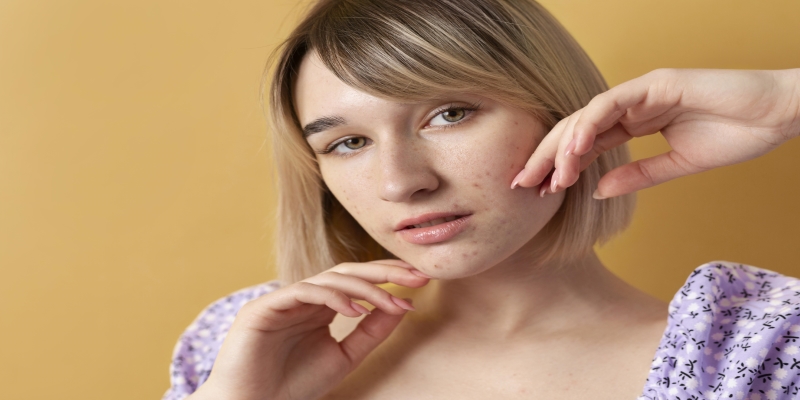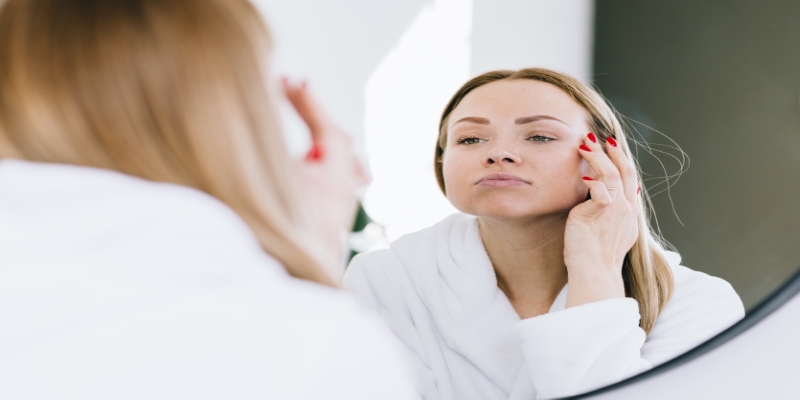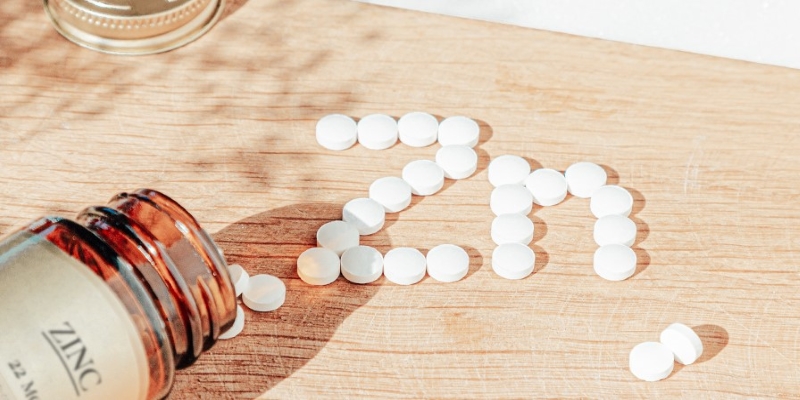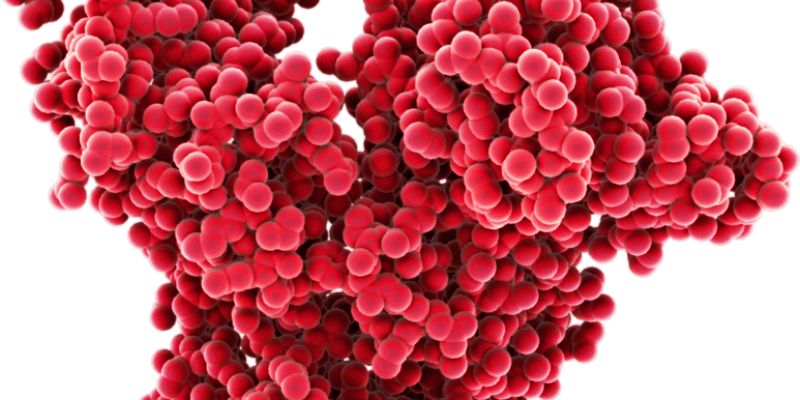The Ultimate Guide to Using Zinc to Get Rid of Acne
Jul 26, 2024 By Madison Evans
Acne is a common skin condition that affects people of all ages, often causing distress and affecting self-esteem. While there are numerous treatments available, many individuals are turning to natural remedies for relief.

One such remedy is zinc, a mineral that has gained popularity for its potential to clear up acne. In this article, well explore why zinc is effective for acne treatment and how you can use it to achieve clearer skin.
Why Zinc Works for Acne?
Acne is a multifaceted skin condition, and understanding how zinc works can help highlight its benefits in acne treatment. Zinc, a vital mineral for various bodily functions, has several properties that make it effective against acne:
Anti-inflammatory Properties
Zinc's anti-inflammatory effects are crucial in managing acne. Acne lesions are often inflamed, causing redness, swelling, and discomfort. Zinc helps reduce this inflammation, making acne less visible and less painful. By calming the skin, zinc can prevent the severe redness and irritation that often accompany breakouts.
Antibacterial Effects
One contributing factor to acne is the presence of bacteria, particularly Propionibacterium acne, which thrive in the oily environment of clogged pores. Zinc has natural antibacterial properties that help inhibit the growth of these bacteria. By reducing bacterial activity on the skin, zinc helps prevent the formation of new pimples and minimizes the severity of existing ones.
Regulation of Sebum Production
Excessive sebum (oil) production is a primary cause of acne. When the sebaceous glands produce too much oil, it can mix with dead skin cells and clog pores, leading to breakouts. Zinc helps regulate the activity of these glands, reducing sebum production. This balance is critical for maintaining clear skin, as it prevents the pores from becoming clogged and forming acne.
Healing and Repair

Zinc is essential for the body's healing processes. It aids in the repair of damaged skin tissues and helps to reduce the appearance of acne scars and blemishes. By promoting the production of new skin cells, zinc facilitates the healing of acne lesions and supports overall skin regeneration.
Hormonal Regulation
Hormonal imbalances, particularly during puberty, menstruation, or stress, can trigger acne by increasing oil production. Zinc plays a role in hormonal regulation, helping to balance the levels of androgens (hormones that can increase oil production). This regulation helps reduce the hormonal triggers that often lead to acne breakouts.
Antioxidant Properties
Zinc has antioxidant properties that protect the skin from damage caused by free radicals and environmental stressors. Free radicals can contribute to inflammation and exacerbate acne. By neutralizing these harmful molecules, zinc helps maintain healthier skin and reduces the risk of acne flare-ups.
Immune System Support
A robust immune system is vital for preventing and combating infections, including those that affect the skin. Zinc supports the immune system, enhancing the body's ability to fight off acne-causing bacteria and other pathogens. A strong immune response helps keep the skin clear and reduces the likelihood of persistent acne.
How to Use Zinc for Acne?
There are various ways to incorporate zinc into your acne treatment regimen, both topically and through diet. Heres a detailed look at how you can use zinc to combat acne:
Zinc Supplements

Taking zinc supplements is a popular method to ensure youre getting enough of this essential mineral. Zinc supplements come in various forms, such as zinc gluconate, zinc sulfate, and zinc picolinate. Heres how to use them effectively:
Consult a Doctor: Before starting any supplement, its important to consult with a healthcare provider to determine the appropriate dosage for your specific needs.
Dosage: The recommended daily allowance (RDA) for zinc varies by age and gender, but for acne treatment, doses typically range from 30 to 45 mg per day.
Consistency: It may take several weeks to notice improvements, so consistency is key. Make sure to take your supplements as directed.
Topical Zinc Applications
Applying zinc directly to the skin can provide targeted acne treatment. Zinc oxide and zinc pyrithione are common forms used in topical treatments. Heres how to incorporate them:
Zinc Oxide Cream: Often found in sunscreens and diaper rash creams, zinc oxide can help soothe irritated skin and reduce inflammation. Apply a thin layer to affected areas once or twice daily.
Zinc Pyrithione: Commonly found in anti-dandruff shampoos, this form of zinc can be used to treat acne by applying it to the skin as directed on the product label.
Homemade Masks: You can create a DIY face mask using zinc oxide powder mixed with water or a natural base like honey. Apply the mask to your face, leave it on for 15-20 minutes, and then rinse thoroughly.
Dietary Sources of Zinc
Incorporating zinc-rich foods into your diet is a natural way to boost your zinc intake and support overall skin health. Foods high in zinc include:
Meat: Beef, pork, and chicken are excellent sources of zinc.
Seafood: Oysters, crab, and lobster are particularly high in zinc.
Nuts and Seeds: Pumpkin seeds, sesame seeds, and cashews are good plant-based sources.
Dairy: Milk, cheese, and yogurt also contain zinc.
Whole Grains and Legumes: Foods like chickpeas, lentils, and quinoa are beneficial for vegetarians and vegans.
Combining Zinc with Other Treatments
For optimal results, zinc can be combined with other acne treatments. Heres how to effectively integrate zinc into your skincare routine:
Over-the-counter Products: Many over-the-counter acne treatments contain zinc alongside other active ingredients like salicylic acid or benzoyl peroxide. Using these products can enhance the effectiveness of your acne treatment.
Prescription Medications: If youre using prescription acne medications, discuss with your dermatologist how to safely incorporate zinc into your regimen.
Natural Remedies: Combining zinc with other natural remedies, such as tea tree oil, green tea extract, or aloe vera, can provide additional benefits for clearer skin.
Conclusion
Zinc is a powerful tool in the fight against acne, offering anti-inflammatory, antibacterial, and healing properties that make it an effective treatment option. Whether through supplements, topical applications, or dietary changes, adding zinc to your skincare routine can help you achieve clearer, healthier skin.
Always consult with a healthcare provider before starting any new treatment to ensure its right for you. With patience and consistency, zinc can be a valuable ally in your journey to combat acne and achieve the clear skin you desire.
-
 Peace of mind Oct 12, 2024
Peace of mind Oct 12, 2024Uncovering The Reasons For Not Gaining Weight: Easy Fixes
Are you experiencing difficulty with weight gain? Explore the top reasons and practical approaches to help you achieve your weight gain objectives.
-
 Condition Nov 05, 2023
Condition Nov 05, 2023Discover why tart cherry juice is a powerhouse beverage, providing anti-inflammatory benefits and antioxidant protection. Find out how it can help heart health, bone density, and more.
Benefits of Tart Cherry Juice
-
 Condition Feb 03, 2024
Condition Feb 03, 2024What is Albumin
Confused about albumin and what it can do for you? Learn the basics in this comprehensive guide to understanding albumin and its many benefits.
-
 Condition Oct 19, 2023
Condition Oct 19, 2023Unmasking Appendicitis: Unraveling the Mystery of Its Symptoms
This comprehensive guide explores the vital symptoms of appendicitis, clears common misconceptions, and emphasizes the importance of early diagnosis and treatment
